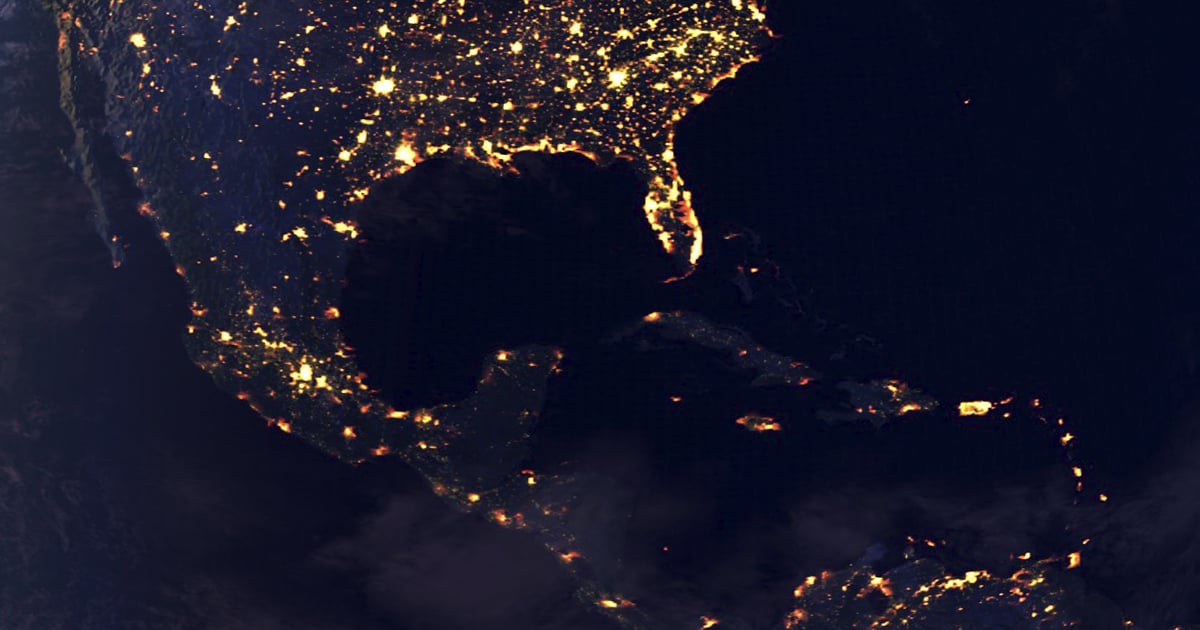
An unprecedented blackout affects the entire island.
On October 18, 2024, Cuba suffered amassive blackoutdue to the total disconnection of the National Electroenergetic System (SEN). The interruption occurred after the Antonio Guiteras thermoelectric plant went offline, which, according to theMinistry of Energy and Mines, it occurred at 11:07 am. The situation has left millions of people without electricity, and although authorities have assured that they are working on restoring the service, they have so far admitted that"there is no defined time to restore the service"Please provide the text you would like me to translate.
Queues, chaos, and dark airports
In Santiago de Cuba, the blackout has left 60% of the gasified population without access to liquefied gas. This situation has triggered long lines of citizens searching for fuel, while the supply has only been restored in two circuits that feed critical hospitals. According to journalist Yosmany Mayeta, these lines have generated scenes of chaos, as people are desperate to obtain the necessary resources for cooking amidst the crisis, the journalist reported.
In Havana, the blackout even affected the José Martí International Airport, which was left completely in the dark. Although the Cuban Aviation Corporation assured that generators were being used to maintain operations, the images shared on social media have raised doubts about whether the energy backup is sufficient to ensure the safety of flights as the authorities indicated.
Suspension of classes in Cuba due to energy crisis
This Friday, classes were suspended across Cuba due to the energy crisis, as reported by journalist Lázaro Manuel Alonso. The measure was justified by the serious situation of the national electric system, which led Prime Minister Manuel Marrero to make an appearance on national television. However, in a post on X (formerly Twitter), the Ministry of Education (MINED) attributed the suspension of classes to bad weather, which caused confusion among the population as the reasons did not coincide.
The government has decided to prioritize the electricity supply to the residential sector, limiting the use of electricity in the state sector to centers deemed essential. In response to the crisis, the Ministry of Culture also canceled cultural activities and closed recreation centers, in addition to implementing savings measures across the public administration. The lack of coordination in the official communication regarding the suspension of classes has been seen as a reflection of the ineffectiveness in managing the energy crisis, as revealed by social media.
Impact on the Internet and reactions from citizens
The crisis has not only affected the electricity supply. The monitoring company NetBlocks warned of a significant drop in internet traffic on the island, directly linked to the disconnection of the Guiteras plant. The cutoff has disrupted both individual users and institutions that rely on connectivity for their operations, NetBlocks confirmed.
The public's reaction on social media was immediate. On platforms like Facebook, users expressed their dissatisfaction with questions like "How much longer?" and criticized the government for not providing effective solutions. The feeling of frustration grew as the prolonged outages continued, leading many to demand political changes in light of what they consider an unsustainable energy crisis according to comments on social media.
Ingenuity in times of crisis
In the midst of blackouts, Cubans have once again demonstrated their ability to adapt to difficult situations. Recently, a viral image showed how a resident transformed an old Singer sewing machine into a coal stove. This type of solution is reminiscent of the improvised measures seen during the "Special Period" in the 90s, when the lack of resources led Cubans to seek alternatives to meet basic needs, highlighted an internet user.
As of today, October 19, 2024, the blackout persists, and the lack of a clear solution has generated increasing pressure on the government. The population continues to demand concrete actions to resolve this crisis, which shows no signs of improvement.
What do you think?
COMMENTFiled under: